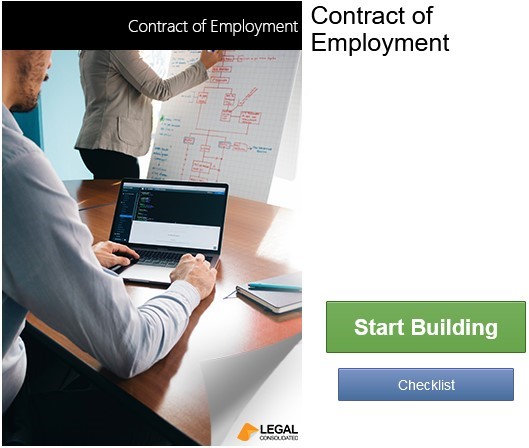Do all Casual Employees now get Annual Leave?
Just paying your employee as a casual is not enough. You need a complying Employment Contract.
Is your casual employee: casual or permanent? Your answer affects:
1. paid leave
2. notice of termination
3. redundancy pay
4. public holidays
5. access to unfair dismissal laws.
Casual employees don’t get paid annual leave, but…
Casuals don’t get paid annual leave. This is under the relevant State’s Minimum Conditions of Employment or under the National Employment Standard (NES). See the Fair Work Act 2009 (Cth).
In WorkPac Pty Ltd v Skene (2018), the Federal Court looked at whether a person was really casual staff.
What is the essence of a “casual”? There is no promise of ongoing work. Similarly, the employee provides no promise of coming back to work. There is:
- No continuing and indefinite work according to an agreed pattern of work.
- Reciprocal obligations don’t exist.
- No regular work pattern.
- Uncertainty, discontinuity, intermittency of work and unpredictability.
- Often the work is short term. It is not ongoing.
Now, this is not the case for many casuals. Often, particularly, a smaller business employs their staff on casual rates. This is usually 20% higher than the usual rate. This is the casual loading. This saves the Employer calculating and keeping records for annual and sick leave.
The Employment Contract may say ‘casual’. The Employee is paid the casual loading. But that is no definitive in itself. The Court looks to all the circumstances. Also, what starts as casual may become permanent.
/employment-page/
The Employer’s argument in WorkPac
WorkPac argued that a “casual employee” is an employee stated as a casual. This is under the relevant agreement or law:
“within the industrial relations system in Australia, it is well recognised that an employee is regarded as a casual employee, for the purposes of identifying and calculating their paid minimum entitlements, if he or she is described or defined as a casual employee under an applicable federal industrial instrument”.
Is the term “casual employee” used in its ordinary, legal, or a specialised non-legal sense? The company WorkPac argues that employers, through the use of an industrial instrument, are entitled to define or describe an employee as casual. That is no longer correct. WorkPac Pty Ltd v Paul Skene changes everything.
Everything changes with WorkPac Pty Ltd v Paul Skene
The Court concluded that industrial instruments are not appropriate to define if a person is “casual”. Instead, the Court turns to the ordinary, legal definition of “causal”.
In the WorkPac case, Paul Skene worked for a labour-hire business. He drove a truck. He was employed as a casual. The Court held that Paul was not casual because:
- Paul’s employment was regular and predictable.
- His working arrangements and shifts were set 12 months in advance under a stable and organised roster.
- His employment was continuous, except for a period of seven days. This is where he went unpaid. This was arranged with the host employer.
- Paul’s employment was facilitated by the fly-in, fly-out arrangement.
- he was provided accommodation. This was at no cost to himself. This is apparently inconsistent with the notion that the employee could elect to work on any day and not work for others.
- The Employer expected that Paul is available, on an ongoing basis. This is to perform the duties required of him. This was set out in the roster.
- The work undertaken by the employee was not subject to significant fluctuation from one day, or one week, or one month, or one year to the next. The hours of work were regular and certain.
Paul was not a casual even though he was paid by the hour.
The Court said it was difficult to characterise casual employment. It relied on the “essence of casualness” set out in Hamzy v KFC (2001) 115 FCR 78:
- The absence of a firm advance commitment as to the length of the employee’s employment. Or the days (or hours) the employee works.
- No firm advance commitment from the employer to continuing and indefinite work according to an agreed pattern of work (and the casual employee will also not provide a reciprocal commitment to the employer).
- Irregular work patterns, uncertainty, discontinuity, intermittency of work and unpredictability.
Paul is sacked and now wants annual leave. His Employment Contract is silent on this.
Paul’s employment could be ended on an hour’s notice and his employer labelled the employment ‘casual’ to the employee’s knowledge.
The Court decided the issue on the fact that the employee had no choice in the days and hours he could work at the mine. The Court ruled that it could not be said there was an absence of a firm advance commitment as to the duration of employment or the days (or hours) the employee would work. Those matters were clear and predictable and set 12 months in advance.
Paul was entitled to receive paid annual leave. WorkPac had failed to meet those entitlements. It had to compensate Paul. Paul also got pecuniary penalties.
Legal Consolidated Employment Contracts comply with ‘casual’ requirements
The Court stated that the “minimum standards that apply to the employment of employees which cannot be displaced”. The Court found that the NES is at the “pinnacle” of the hierarchy of terms and conditions of employment. It has primacy over terms and conditions of employment. This includes Employment Contracts.
What makes Legal Consolidated’s Employment Contracts more robust? It is that our Employment Contract expressly states that it is read down when a mandatory law applies. Our Employment Contracts don’t go out of date. They are safe.
Our Employment Contracts are drafted to avoid double dipping where uncertainty exists.
Is Paul double-dipping as a casual?
In Paul’s case, he seems entitled to both the casual load AND paid annual leave. The Court tells us two things about “double dipping”.
- There was no evidence that Paul was actually paid casual loading.
- The Court applies this approach:
1. If the Employee is really a full or part-time employee, they don’t get casual loading.
2. The Employer may still pay the loading. However, that may not reflect on their real status of employment. Paying the casual loading is not definitive.
3. What if you pay casual loading by mistake?
4. You may have to pay annual and sick leave. Plus you may have to pay other full-time or part-time employee entitlements.
The Court states that the Employee can’t double dip. If they are casual they get the casual loading. And that is it. However, if they are really permanent/part-time and they would have got ‘other benefits’ in excess of the casual loading then the employee gets topped up.
The High Court moves to back to looking at the ‘agreement’
Workpac v Rossato & Ors [2021] HCA 23
Consider Workpac v Rossato & Ors [2021] HCA 23. In this case the High Court carefully considered the employment contract between Workpac and Mr Rossato. The result? Mr Rossato is a casual employee.
He, therefore, does not get leave entitlements.
The High Court in Workpac v Rossato states:
57. A court can determine the character of a legal relationship between the parties only by reference to the legal rights and obligations which constitute that relationship. The search for the existence or otherwise of a “firm advance commitment” must be for enforceable terms, and not unenforceable expectations or understandings that might be said to reflect the manner in which the parties performed their agreement. To the extent that Bromberg J expressed support for the notion that the characterisation exercise should have regard to the entirety of the employment relationship, his Honour erred.
62. To insist upon binding contractual promises as reliable indicators of the true character of the employment relationship is to recognise that it is the function of the courts to enforce legal obligations, not to act as an industrial arbiter whose function is to synthesise a new concord out of industrial differences. …
…
101. … the present case is concerned with the character of an employment relationship, a question the resolution of which has no significance for the rights of persons who are not privy to the relationship. The analysis in Hollis v Vabu affords no assistance, even by analogy, in the resolution of a question as to the character of an employment relationship, where there is no reason to doubt that the terms of that relationship are committed comprehensively to the written agreements by which the parties have agreed to be bound.
The decision in Workpac v Rossato places greater emphasis back on the Employment Contract. It did not follow the multi-factorial test applied in Hollis v Vabu.
What do accountants, financial planners and lawyers ask their clients who employ “casuals”?
Many casual employees are now entitled to extra benefits. This may include paid annual leave. The question of whether a person is a “casual employee” is determined by a number of indicia. This includes the regularity of work patterns, the certainty of work, continuity of service, intermittency of work and its predictability.
Speak to your professional adviser about:
- Is there a mutual commitment to ongoing employment?
- Does my employee work irregular work patterns, with uncertainty, discontinuity, intermittency of work and unpredictability?
- Do I or my employees know they are casual?
- Does the modern award state my employees is casual?
- Does my Employment Contract clearly state “casual”?
- Any certainty regarding the period over which employment is offered?
If you are concerned about the basis of casual engagement then Build a Legal Consolidated Barristers & Solicitor Employment Contract. You can build them online. Just press the blue button on the top of this page to get started.
Adj Professor, Dr Brett Davies, CTA, AIAMA, BJuris, LLB, LLM, MBA, SJD
Legal Consolidated Barristers and Solicitors
Australia wide law firm
Mobile: 0477 796 959
National: 1800 141 612
Email: brett@legalconsolidated.com
Legal Consolidated’s Employment Contracts comply with:
ACT Visiting Medical Officers Association v Australian Industrial Relations Commission (2006) 232 ALR 69
ACE Insurance Ltd v Trifunovski (2011) 200 FCR 532
ACE Insurance Ltd v Trifunovski (2013) 209 FCR 146
Alcan (NT) Alumina Pty Ltd v Commissioner of Territory Revenue (2009) 239 CLR 27
Amcor Limited v Construction, Forestry, Mining and Energy Union (2005) 222 CLR 241
Attorney-General (NSW) v Brewery Employee’s Union of New South Wales (1908) 6 CLR 469
Australian Building and Construction Commissioner v Construction, Forestry, Mining and Energy Union (2017) 254 FCR 68
Autoclenz Ltd v Belcher [2011] 4 All ER 745
Baini v The Queen (2012) 246 CLR 469
Bernardino v Abbott [2004] NSWSC 430
Cetin v Ripon Pty Ltd (t/as Parkview Hotel) (2003) 127 IR 205
City of Wanneroo v Holmes (1989) 30 IR 362
Collector of Customs v Bell Basic Industries Ltd (1988) 20 FCR 146
Comcare v Post Logistics Australasia Pty Limited (2012) 207 FCR 178
CPSU, Community & Public Sector Union v State of Victoria (2000) 95 IR 54
Craig Williamson Pty Ltd v Barrowcliff [1915] VLR 450
Dalgety Farmers Ltd t/as Grazcos v Bruce (1995) 12 NSWCCR 36
See also:
Damevski v Giudice (2003) 133 FCR 438
Doyle v Sydney Steel Company Limited (1936) 56 CLR 545
Electrolux Home Products Pty Limited v Australian Workers’ Union (2004) 221 CLR 309
Fair Work Ombudsman v Devine Marine Group Pty Ltd [2014] FCA 1365
Fair Work Ombudsman v Hu (No 2) [2018] FCA 1034
Fair Work Ombudsman v Quest South Perth Holdings Pty Ltd [2015] FCAFC 37
Fair Work Ombudsman v South Jin Pty Ltd [2015] FCA 1456
Gamer’s Motor Centre (Newcastle) Pty Ltd v Natwest Wholesale Australia Pty Ltd (1985) 3 NSWLR 475
Geo A Bond & Co Ltd (in liq) v McKenzie [1929] AR(NSW) 498
Haley v Public Transport Corporation of Victoria (1998) 119 IR 242
Hamzy v Tricon International Restaurants trading as KFC (2001) 115 FCR 78
Hewlett Packard Australia Pty Ltd v GE Capital Finance Pty Ltd (2003) 135 FCR 206
Hollis v Vabu Pty Ltd (2001) 207 CLR 21
Informax International Pty Ltd v Clarius Group Limited (2012) 207 FCR 298
Kucks v CSR Limited (1996) 66 IR 182
And also:
Ledger v Stay Upright Pty Ltd [2016] FCA 659
MacMahon Mining Services Pty Ltd v Williams [2010] FCA 1321
McClelland v Northern Ireland General Health Services Board [1957] 1 WLR 594
Melrose Farm Pty Ltd (t/as Milesaway Tours) v Milward (2008) 175 IR 455
Minister for Immigration and Multicultural and Indigenous Affairs v SZAYW (2005)145 FCR 523
Personnel Contracting Pty Ltd (t/as Tricord Personnel) v Construction, Forestry, Mining and Energy Union of Workers (2004) 141 IR 31
Putland v Royans Wagga Pty Ltd [2017] FCA 910
R v Foster; Ex parte The Commonwealth Life (Amalgamated) Assurances Limited (1952) 85 CLR 138
Re 4 Yearly Review of Modern Awards – Casual Employment and Part-time Employment (2017) 269 IR 125
Re 4 Yearly Review of Modern Awards – Penalty Rates (2017) 265 IR 1
Re Alcan Australia Limited; Ex Parte Federation of Industrial Manufacturing and Engineering Employees (1994) 181 CLR 96
Re Secure Employment Test Case (2006) 150 IR 1
Reed v Blue Line Cruisers Limited (1996) 73 IR 420
Registrar of Titles (WA) v Franzon (1975) 132 CLR 611
Secretary, Department of Social Security v Copping [1987] 73 ALR 343
Shop Distributive and Allied Employees’ Association v Woolworths SA Pty Ltd [2011] FCAFC 67
And also:
Shugg v Commissioner for Road Transport & Tramways (NSW) (1937) 57 CLR 485
Skene v Workpac Pty Ltd [2016] FCCA 3035
Skene v WorkPac Pty Ltd (No 2) [2017] FCCA 525.
SZTAL v Minister for Immigration and Border Protection [2017] HCA 34
Taylor v The Owners – Strata Plan No 11564 (2014) 253 CLR 531
Telum Civil (Qld) Pty Limited v Construction, Forestry, Mining and Energy Union [2013] FWCFB 2434
The State of Queensland (Queensland Health) v Chi Forest (2008) 168 FCR 532
Thiess v Collector of Customs (2014) 250 CLR 664
Thompson v Big Burt Pty Ltd (t/as Charles Hotel) (2007) 168 IR 309
Vidler v Federal Commissioner of Taxation (2010) 183 FLR 440
Williams v MacMahon Mining Services Pty Ltd [2009] FMCA 511
Yaraka Holdings Pty Limited v Ante Giljevic (2006) 149 IR 339










